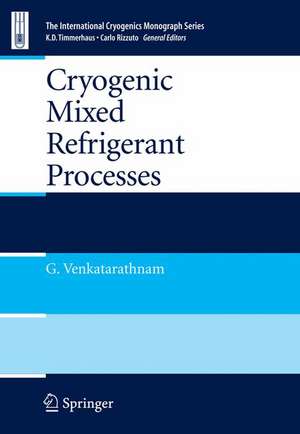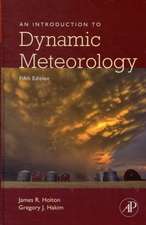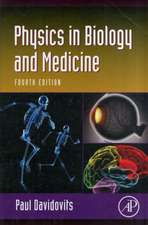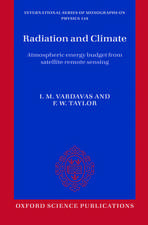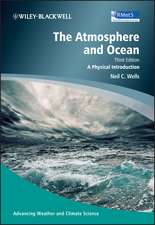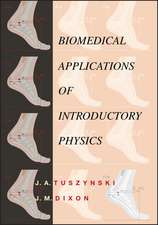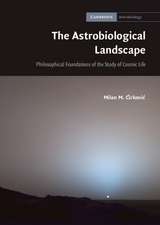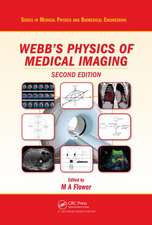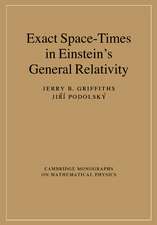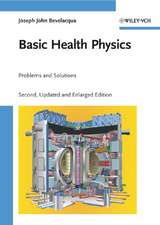Cryogenic Mixed Refrigerant Processes: International Cryogenics Monograph Series
Autor Gadhiraju Venkatarathnamen Limba Engleză Hardback – 8 sep 2008
| Toate formatele și edițiile | Preț | Express |
|---|---|---|
| Paperback (1) | 938.34 lei 6-8 săpt. | |
| Springer – dec 2010 | 938.34 lei 6-8 săpt. | |
| Hardback (1) | 942.77 lei 6-8 săpt. | |
| Springer – 8 sep 2008 | 942.77 lei 6-8 săpt. |
Din seria International Cryogenics Monograph Series
- 18%
 Preț: 948.29 lei
Preț: 948.29 lei - 18%
 Preț: 952.57 lei
Preț: 952.57 lei - 18%
 Preț: 1662.85 lei
Preț: 1662.85 lei - 18%
 Preț: 1225.94 lei
Preț: 1225.94 lei - 18%
 Preț: 948.61 lei
Preț: 948.61 lei - 18%
 Preț: 1842.79 lei
Preț: 1842.79 lei - 24%
 Preț: 1081.72 lei
Preț: 1081.72 lei - 24%
 Preț: 1160.84 lei
Preț: 1160.84 lei - 18%
 Preț: 962.49 lei
Preț: 962.49 lei - 18%
 Preț: 1070.60 lei
Preț: 1070.60 lei -
 Preț: 394.87 lei
Preț: 394.87 lei - 18%
 Preț: 1218.21 lei
Preț: 1218.21 lei - 15%
 Preț: 643.34 lei
Preț: 643.34 lei - 24%
 Preț: 952.89 lei
Preț: 952.89 lei - 24%
 Preț: 727.78 lei
Preț: 727.78 lei - 18%
 Preț: 945.79 lei
Preț: 945.79 lei - 18%
 Preț: 1111.67 lei
Preț: 1111.67 lei - 23%
 Preț: 832.28 lei
Preț: 832.28 lei - 18%
 Preț: 747.38 lei
Preț: 747.38 lei
Preț: 942.77 lei
Preț vechi: 1149.72 lei
-18% Nou
Puncte Express: 1414
Preț estimativ în valută:
180.39€ • 188.35$ • 149.30£
180.39€ • 188.35$ • 149.30£
Carte tipărită la comandă
Livrare economică 04-18 aprilie
Preluare comenzi: 021 569.72.76
Specificații
ISBN-13: 9780387785134
ISBN-10: 0387785132
Pagini: 262
Ilustrații: XIII, 262 p.
Dimensiuni: 155 x 235 x 18 mm
Greutate: 0.52 kg
Ediția:2008
Editura: Springer
Colecția Springer
Seria International Cryogenics Monograph Series
Locul publicării:New York, NY, United States
ISBN-10: 0387785132
Pagini: 262
Ilustrații: XIII, 262 p.
Dimensiuni: 155 x 235 x 18 mm
Greutate: 0.52 kg
Ediția:2008
Editura: Springer
Colecția Springer
Seria International Cryogenics Monograph Series
Locul publicării:New York, NY, United States
Public țintă
ResearchCuprins
Fundamental principles and processes.- Simulation of cryogenic processes.- Need for refrigerant mixtures.- Constant-temperature refrigeration processes.- Optimum mixture composition.- Natural gas liquefaction processes.- Cooling and liquefaction of air and its constituents.
Notă biografică
Dr. G. Venkatarathnam is a Professor of Mechanical Engineering at the Indian Institute of Technology Madras in southern India. He holds Ph.D. and Masters degree in Cryogenic Engineering and has more than 20 years research experience in the area of Cryogenic refrigerators and liquefiers. He works in the broad areas of Refrigeration, Cryogenic Engineering and Compact heat exchangers. His research interests are in refrigerant mixtures and mixed refrigerant processes for heat pumps, refrigerators, cryocoolers (cryogenic refrigerators) and liquefiers, process simulation and optimization, and development of cryogenic heat exchangers, refrigerators and liquefiers. He has taught Cryogenic Engineering, Refrigeration and related subjects at the Indian Institutes of Technology at Kharagpur and Madras, and at the Universit�t Karlsruhe, Germany. He also holds a few patents on refrigerant mixtures.
Textul de pe ultima copertă
Cryogenic refrigerators operating with refrigerant mixtures were developed under classified and proprietary programs for many years, and it was only after 1991 that the world realized the importance of the mixed refrigerant systems for cryogenic refrigeration. Mixed refrigerant cryogenic processes are also used in most large base load natural gas liquefaction plants. Hundreds of patents exist on different aspects of mixed refrigerant processes for liquefaction of natural gas, as well as the composition of mixtures for Joule-Thomson and other refrigerators. Still, the fundamental aspects of these processes continued to not receive the attention they deserve in open literature in the view of these commercial interests.
Cryogenic Mixed Refrigerant Processes, by Dr. G. Venkatarathnam, explains all the aspects of mixed refrigerant processes using robust analytical methods based on sound thermodynamic principles, drawing upon many case studies and examples, largely unpublished, to teach:
- the need for refrigerant mixtures
- the different processes than can be used in refrigeration and liquefaction systems
- the methods to be adopted for choosing the components of a mixture and their concentrations used for various cryogenic applications
- the methods for simulating and optimizing cryogenic processes
Cryogenic Mixed Refrigerant Processes will be a valuable and much needed reference for researchers and scientists whose focus includes cryogenic engineering, natural gas liquefaction, refrigeration systems, and process simulation and optimization.
Dr. G. Venkatarathnam is Professor of Mechanical Engineering at the Indian Institute of Technology Madras, India.
“…this is a good reference both for entering the domain of mixed refrigerant processes, and to expand the knowledge of optimal applications for this technique. It is a compact book that gives practical answers on the why and how to usemixtures in cryogenics.”-Luca Bottura, CERN, Switzerland
“This book is an important source of knowledge for post-graduate students, process engineers working on equipment projects for gas liquefaction industry as well as those, operating liquefaction plants, or for feasibility studies analysts, as well as for newcomers in this branch of technology. Reading of the book doesn’t require any previous specific knowledge except of basic course of thermodynamics on university level. All readers will certainly appreciate the work done by the author on optimization of all the cycles. It may save a lot of research and engineering work of those working on projects. Possibly, it can also help to achieve more optimized solutions.”-Vaclav Chrz, Chart Ferox, Czech Republic
Cryogenic Mixed Refrigerant Processes, by Dr. G. Venkatarathnam, explains all the aspects of mixed refrigerant processes using robust analytical methods based on sound thermodynamic principles, drawing upon many case studies and examples, largely unpublished, to teach:
- the need for refrigerant mixtures
- the different processes than can be used in refrigeration and liquefaction systems
- the methods to be adopted for choosing the components of a mixture and their concentrations used for various cryogenic applications
- the methods for simulating and optimizing cryogenic processes
Cryogenic Mixed Refrigerant Processes will be a valuable and much needed reference for researchers and scientists whose focus includes cryogenic engineering, natural gas liquefaction, refrigeration systems, and process simulation and optimization.
Dr. G. Venkatarathnam is Professor of Mechanical Engineering at the Indian Institute of Technology Madras, India.
“…this is a good reference both for entering the domain of mixed refrigerant processes, and to expand the knowledge of optimal applications for this technique. It is a compact book that gives practical answers on the why and how to usemixtures in cryogenics.”-Luca Bottura, CERN, Switzerland
“This book is an important source of knowledge for post-graduate students, process engineers working on equipment projects for gas liquefaction industry as well as those, operating liquefaction plants, or for feasibility studies analysts, as well as for newcomers in this branch of technology. Reading of the book doesn’t require any previous specific knowledge except of basic course of thermodynamics on university level. All readers will certainly appreciate the work done by the author on optimization of all the cycles. It may save a lot of research and engineering work of those working on projects. Possibly, it can also help to achieve more optimized solutions.”-Vaclav Chrz, Chart Ferox, Czech Republic
Caracteristici
The author uses analytical methods based in sound thermodynamics to design mixed refrigerant processes The book has scores of examples and case studies which will help the reader understand the principals of cryogenic mixed refrigerant cycles Readers will be able to quickly understand the fundamentals of the various mixed refrigerant cycles and start their own work on this frontier research area Includes supplementary material: sn.pub/extras
